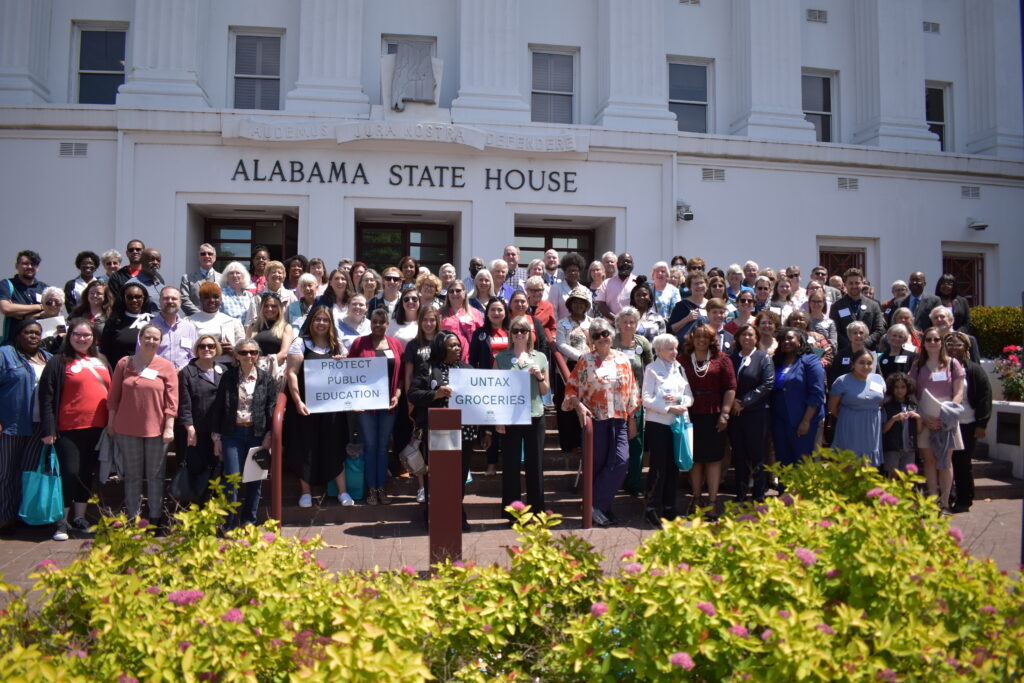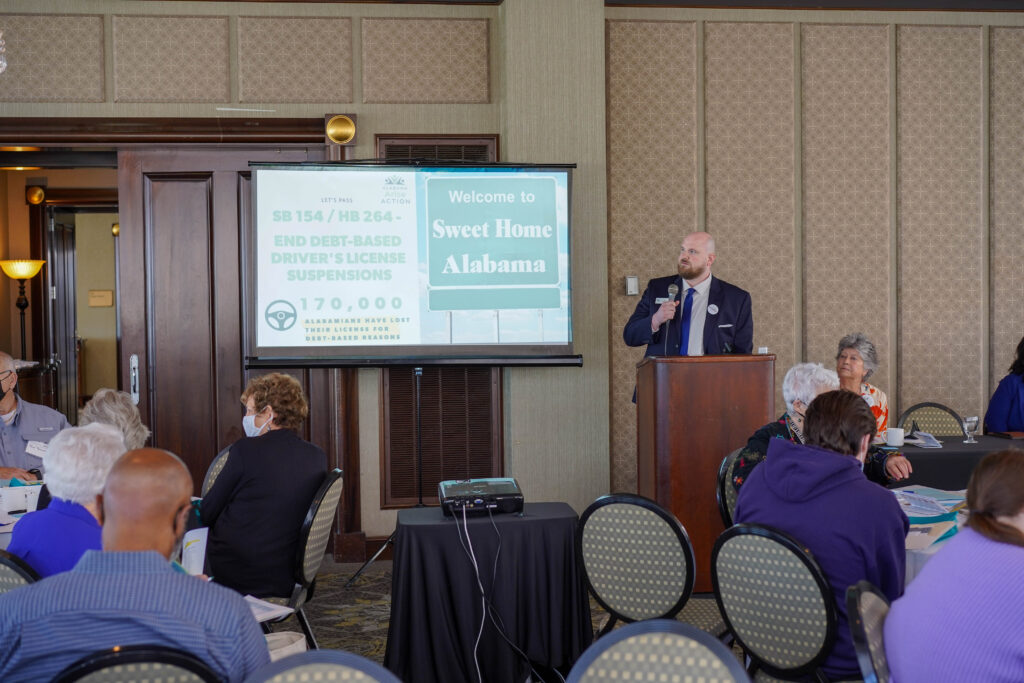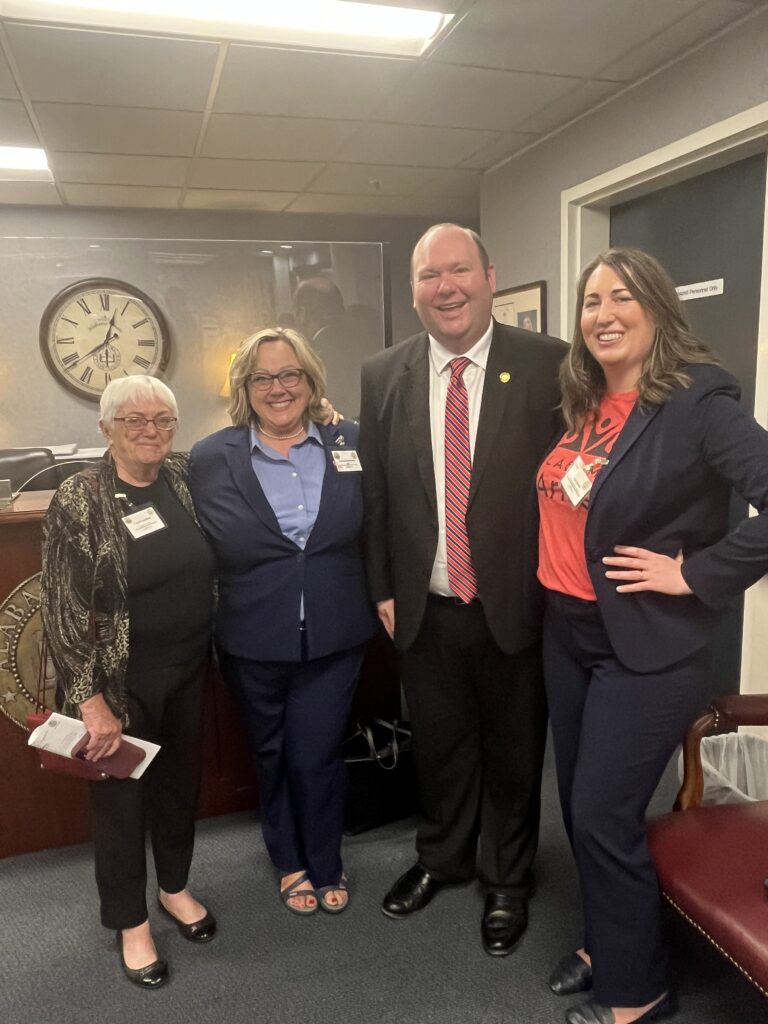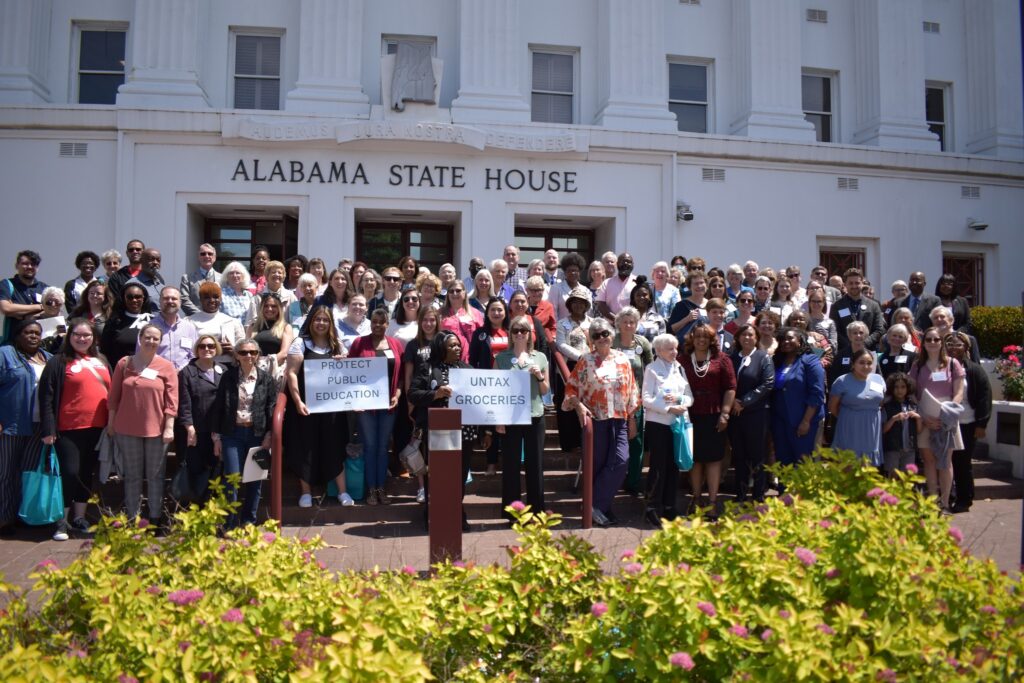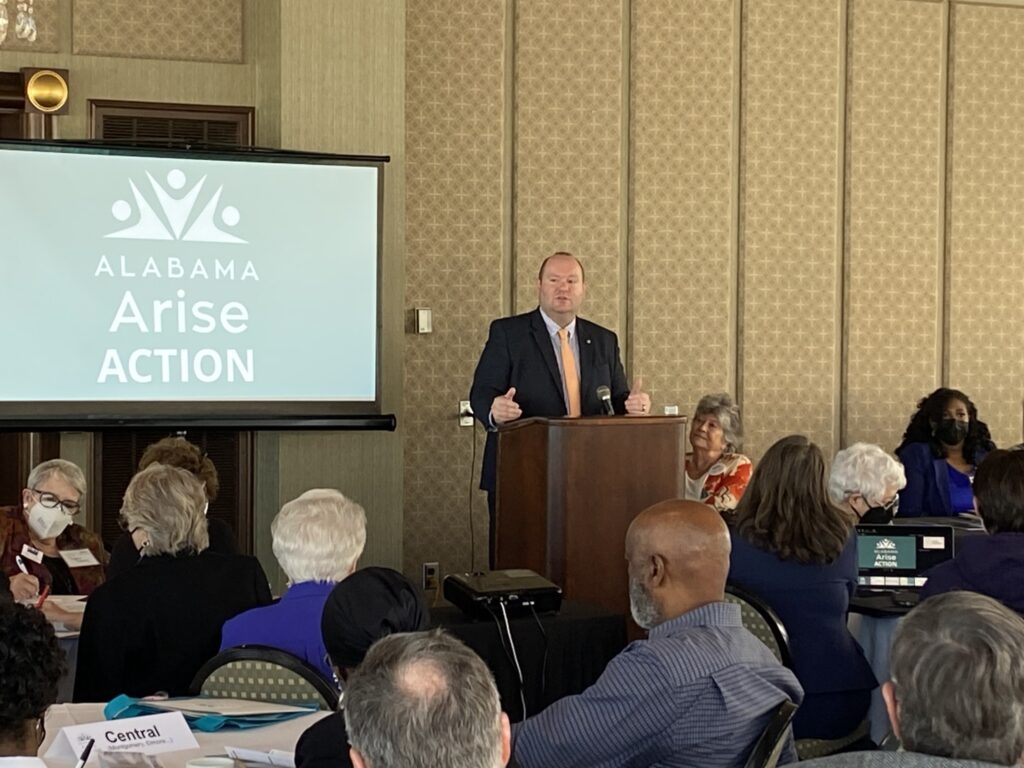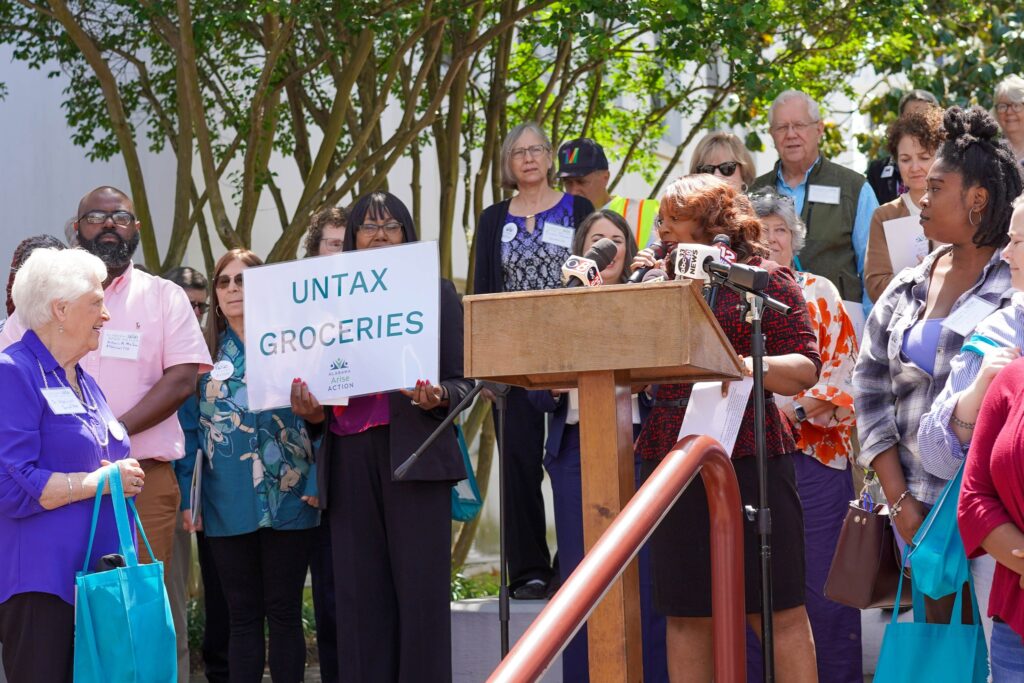Alabama Arise listens because we deeply value the input we get from members, partners and most importantly, those directly affected by the work we do together. We depend on what we hear to help guide our issue work and our strategies.
We held three statewide online events this summer: two Town Hall Tuesdays and one public transportation listening session. And we facilitated eight additional listening sessions around the state, engaging a total of about 375 people.
The town halls happened on July 18 and Aug. 8, and the public transit event was Aug. 9. Other meetings took place throughout the summer. This year we are sharing the direct notes and highlights from each of the meetings as recorded during the sessions.
Town Hall Tuesdays & Public Transportation Listening Session
- Building on our vision: We had three breakout rooms during this session. We asked folks in each group to discuss their thoughts on current issues and to share other priorities they had. Here’s what we heard:
Group One: Participants generally thought Arise should continue working on the current issues. They noted that the issues are interconnected, and that makes it hard to prioritize. Concerns about criminal justice conviction practices were raised, along with the need for continued work on voting rights and Medicaid expansion. Other issues raised were the need for more affordable housing, paying a living wage versus a minimum wage, and the need to discuss the impact of the opioid epidemic on grandparents now raising children because their parents suffer with addiction. Participants also raised reapportionment as an important issue.
Group Two: Participants strongly believed all of the Arise priority issues are important and that we should continue to work on them. Some of the specific issues lifted up were transportation, voting rights, payday lending and Medicaid expansion. Some issues that are not current Arise priorities raised were housing, disability, mental health access and accountability and prison reform.
Group Three: Medicaid expansion received the most support for continued work. Several people voiced prisons and criminal justice as a concern, including the need for prison reform and bail reform. Voting rights and the concern about the many voter suppression bills was a high-priority topic. Participants discussed passionate concern about payday loans, and the group supported the present slate of issues.
- Building on our hope: We had three breakout rooms during this session. We asked folks in each group to discuss what motivates them to act on issues and how Arise supports their actions. We also asked them to indicate their priority issues. Here’s what we heard:
Group One:
- The discussion in the group was hot and heavy concerning voting rights and specifically the absentee ballot application. The group concluded that a no-excuse absentee ballot should be the norm and should be an Arise issue for 2024.
- The group felt strongly that the 2023 Arise slate of issues should all remain on the 2024 list of Arise priority issues. Medicaid is an issue we need to keep fighting for, they said.
- This group had a primary focus and lengthy discussion around voting rights.
Group Two:
- All members of the group strongly believe all the Arise priority issues are important and that we should continue to work on them.
- Members also strongly believe affordable housing and public transportation should receive a strong voice like Medicaid expansion.
- Members said that to further our support of advocacy work, Arise can help unite nonprofits and grassroots organizations across the state to work together toward shared goals as opposed to working separately toward shared goals.
- Members lifted up our education and lobbying work as essential to connecting the people to those who represent them in the Legislature.
Group Three: Voting rights emerged as a strong theme from this group’s discussion. Participants stressed the importance of voter education and folks making the connection between voting and the policies elected officials make that impact their lives. Other voting themes included restoration of voting rights and engaging younger and BIPOC voters. Other issues raised were around public transportation and the need to fund mental health services. One participant expressed appreciation for the storytelling work Arise does related to Medicaid expansion and urged similar storytelling to help move elected officials around other Arise issues.
- Public Transportation Listening Session: We had three breakout rooms during this session. We asked folks in each group to discuss what’s needed to improve public transit in Alabama, what strategies are needed to move the issue forward and how public transit impacts quality of life in their communities.
Group One:
- Private companies like Uber and Lyft are not equipped to serve the disability community, group members said. This is very important when talking about transportation for the disability community wherever they may be, rural or urban. In other words, the private companies are not a viable resource, participants said.
- Rural linkage: Many rural counties have transportation-on-demand systems, but they only serve the county boundaries. Many health services reside in urban centers, and the rider needs to get from Blount County to UAB or Children’s Hospital in Birmingham. These riders are out of luck. Transfer hubs for rural to urban systems do not exist.
- A state transportation planning system is needed to coordinate all the existing public systems, rural and urban. Participants hoped Arise’s forthcoming transit study will shine some light on the need for a statewide public transportation planning entity.
- The group felt a need for massive public education around the benefits of public transportation. Somehow, Arise or a group of organizations should seek funding for an advertising budget, participants said.
- The real cost of owning a car versus using public transportation. This kind of information should be available to the public.
- The fact that public transportation is good for business development throughout the state should be targeted to legislators and local business councils and chambers of commerce.
Group Two:
- This group believes public transportation is essential.
- There is a need for more hubs and covered stops for locations that already have public transportation in place.
- There is a need for more routes with more frequent buses each hour, as well as drivers who are paid livable wages.
- Specific strategies discussed included working with for-profits, chambers of commerce, small businesses and corporations to improve transportation for their employees. Participants also suggested surveying the need for transportation by including a question on applications to ask if transportation is needed.
- Public transportation impacts the quality of life across the board: health, food, employment, education, leisure, etc.
- People have a right to comfort, dignity, pride and independence that public transportation can provide.
- One member said reaching out to people who do not need or use public transportation is important to educate them that they can still benefit from it. It helps reduce traffic and road congestion, decreases likelihood of drinking and driving, and helps people out of desperate situations, which can help decrease poverty and crime.
- A member of the Alabama Institute for the Deaf and Blind shared how losing the ability to drive caused depression. But oppression is felt when there are no options for transportation other than relying on friends or family if you have them, or simply being unable to go to doctor’s appointments, shop for groceries or pick up medications when needed.
- Some members suggested a public Lyft/Uber service.
Group Three:
- Needs: Money/state funding, alternative models, transit-oriented development at local levels, accessibility, buy-in from agencies like ALDOT, changed perception of public transit.
- Strategies/tactics: Collect public transit stories, share statistics on earning power with vs. without good public transit and other data relevant to workforce development, and highlight workforce development as a theme for legislative lobbying. Participants discussed a license plate fee, tire fee or special license plate (like public schools have, for example).
- Quality of life: A visually impaired participant described how a trip to the grocery store or polling place only a couple miles away is a $25 Uber ride one way. Another participant who works with clients described how their lack of access to public transit affects not just work but health appointments, visiting DHR to secure SNAP, applications for housing, etc. They also mentioned that even “low-cost” transit can be a barrier to low-income folks who may not have a dollar for a ride.
Additional listening sessions
Following are the brief notes/summaries from eight other sessions our organizers held during the summer. In general, all participants strongly affirmed Arise’s work on the current issue priorities. They also highlighted some other issues of concern.
- Cullman, July 26 (Stan Johnson) – This was a well-informed group with a lot of comments and questions concerning criminal justice, public transportation, death penalty and new prison construction.
- Opelika, July 26 (Formeeca Tripp) – This group discussed issues surrounding housing, transportation, food insecurity, health care and the legal system. Housing was a top issue.
- Zoom, Aug. 3 (Formeeca) – A death penalty group discussed issues related to recent executions in Alabama, as well as upcoming executions nationwide. Participants said more attention and connections are necessary to bring more awareness to death penalty reform.
- Tuscaloosa, Aug. 7 (Stan) – The most passionate suggestion from this meeting was the need for legislative action to provide funding for mental health.
- Opelika, Aug. 17 (Formeeca) – Arise conducted listening sessions in the form of a series of small group meetings.
Group 1: Predominantly parents, people of the community and law enforcement. They supported all current issues but wanted to focus on housing and transportation.
Group 2: Predominantly school staff, counselors, superintendents, principals, resource providers, etc. They wanted resources for non-English-speaking families, housing, transportation and effective mental health services.
Group 3: Predominantly youth, teenagers and support staff. They wanted to learn more about their representatives and how to lift up their own voices, as well as better wages and job opportunities.
- Montgomery, Aug. 17 (Formeeca) – This group discussed their strategic plan to add to the existing public transportation priority issue. They want to add a $1 fee to license plates to fund the Public Transportation Trust Fund.
- Birmingham, Sept. 10 (Stan) – This group showed special interest in fair housing and criminal justice reform. Voting rights also was a concern to the group, specifically absentee voting bills that may be reintroduced in the upcoming session.
- Auburn, Sept. 21 (Formeeca) – Students from an Auburn University class filled out a 2024 issue proposal survey form asking them to rank issues of priority. The top three issues that seemed to rank the highest were public transportation, voting rights and criminal justice reform.

